- Home
- Kathryn Lasky
Tangled in Time 2 Page 2
Tangled in Time 2 Read online
Page 2
“Heirloom,” Susan muttered. “Give me a break.”
“Stupido!” Jenny shouted.
Marisol turned pale. Her eyes darted around the room like a trapped animal looking for escape.
“I can’t believe she just said that!” Rose gasped.
“Look at them! Look at the Trio of Doom.” Joe leaned over and whispered to Rose. “They’re trying not to laugh.”
“Duet of Doom. No Brianna,” Rose said.
Indeed, Carrie’s and Lisa’s mouths were locked between smirks and howls of merriment. Meanwhile Jenny was giving an Academy Award–winning performance of outrage. “Do you know how much this cost? This sweater?”
Anand, who was sitting next to Joe, jumped up to help Marisol salvage what she could from her lunch. She had arrived only a few weeks ago. Rose scooted over and made room for Marisol. “Don’t listen to them, Marisol. They’re just a bunch of jerks.”
“Hey! Look over there—seismic shift,” Kevin said suddenly.
“What are you talking about?” Rose asked.
“Okay, don’t be obvious, but look who’s sitting in the corner—alone.”
They all slid their eyes around to steal a glance.
“Brianna alone?” Joe said. “Impossible.”
“Then it is a duet,” Myles said. It was difficult for him to turn around in his wheelchair.
“Who will replace her?” Anand asked.
“Someone, I’m sure,” Rose said. “Power vacuum.”
“Power?” Marisol whispered. She appeared frightened. Very frightened.
“Oh, don’t worry, it’s just an expression,” Rose said.
“A law of physics, actually,” Anand said. “Any space in which the pressure is lower than the atmospheric pressure. I’ll demonstrate.” He began sucking on his straw. The liquid rose in the straw. “See?” he said, looking up at Marisol. “I reduced the pressure by sucking and the milk flowed up. Same thing over there.” He tipped his head toward Carrie and Lisa, who were sitting at a table with a couple of sixth graders. “One of those kids will fill in for Brianna.”
“I’d put my money on the cashmere sweater heiress, Jenny,” Rose replied in a scalding voice.
Jenny was quite tiny, more the size of a fourth grader than a sixth grader, and right now she was looking up at Carrie with adoring eyes. Was she seeking approval? Jenny’s once almost white-blond hair now shimmered pink and had a spritz of glitter as well.
“What’s with the pink hair?” Joe asked.
“Well, look at Carrie with her blue streak. Obviously, she is worshipping at the altar of the Mean Queens—the glitter like Lisa, and the pink hair. What more do you need to know?”
“Looks like a wad of bubble gum,” Rose muttered.
Jenny had a tiny turned-up nose and she very much reminded Rose of Tinker Bell since she wore her hair in a little knot on top of her head. Her bangs fell in a slant across her forehead. It was the exact same hairstyle as Tinker Bell had in the Disney movie. Perky! Rose thought. Perky with a capital P! There was a rumor that Jenny’s mom was grooming her for the tryouts for the next season of America’s Next Top Tween Model.
“Hey, Rose,” Myles said. “Look over there; Mr. Ross is trying to get your attention.”
Rose looked up and saw Mr. Ross waving at her.
Uh . . . oh . . . , thought Rose, and got up from her seat and walked over to him.
“I didn’t mean to interrupt your lunch, Rose.”
“No, it’s okay. I was done.” Lie.
“Well, I’d rather discuss this in homeroom.”
“Fine.”
When they got to the homeroom, Mr. Ross pulled out the spelling papers. “I want to apologize.”
“For what?” she asked, and dipped her head. She could not face those watery translucent eyes that looked as if they were on the edge of tears. She heard him sniffle.
“For this.” He slid a paper toward her.
Her own handwriting glared back at her. To address seventh-grade girls as “young ladies” is not simply condescending, but in truth patronizing, and although it might suggest apparent kindness, it actually betrays the sense of superiority of the speaker.
“There is so much truth to what you say. As Harper Lee says in To Kill A Mockingbird, ‘You never really understand a person until you consider things from his point of view . . . until you climb into his skin and walk around in it.’” He gave a little chuckle, and this was followed by a gigantic sneeze. “Sorry about that. I’m allergic to a lot of stuff, especially this season—holly, certain kinds of Christmas trees . . .”
“Cats?”
“Yes, some cats. But the point is, Rose, that I never considered how the term might sound condescending, and patronizing. . . . I failed to climb into a seventh grader’s skin and walk around in it.”
“It’s okay,” Rose muttered, and then paused.
“It’s not okay,” he said. Rose wanted to try to tell him that it would be impossible for him to climb into her skin and walk around . . . walk between two centuries. “Well, I’m sorry.” He picked up a red pencil and marked the paper A++.
Chapter 3
Know Thine Enemy
“Do you ever wonder about Marisol?” Rose asked Susan as they picked over some shoes in their favorite vintage store, Old Souls.
“What do you mean?”
“Well, you know, she just showed up a few weeks ago, kind of mysteriously. And she seems . . . I don’t know, kind of scared of something.”
“I think she’s pretty smart, because her English has really improved fast,” Susan said. “She’s in that English as a second language program, isn’t she?”
“I think so,” Rose replied.
“But I don’t know why you think she’s scared of something. I just think she looks tired a lot,” Susan said.
“You do?”
“Yeah, in math—and she’s pretty good in math—I guess that’s why she’s in our class. Math being a kind of universal language.” Susan picked up a strange-looking coat. “What the heck is this?”
“Ahh . . .” A voice tinkled from the other side of the rack. A little lady with a tumble of curls piled atop her head toddled out. “I wondered how long it would take you to discover that. It’s a pelisse. Quite the fashion about two hundred years ago. Once fur trimmed. The embroidery work is gorgeous. I’ll sell it to you cheap, because moths have feasted on most of it.”
“But not the sleeves,” Rose said.
“But what are you going to do with just sleeves?” Susan asked.
“Turn them into pants—cropped pants. Look, it’s velvet and the embroidery is beautiful.”
“Oh yes, in the mid-1800s there was quite a passion for floral embroidery on coats and jackets,” said the little lady, Elsie, the proprietor of the store.
The flowers reminded Rose of the long dangling vines of pink blossoms that hung in the greenhouse. Their scent had greeted her return from sixteenth-century England and Greenwich Palace. Rose wondered if her father was at Greenwich now. Or was he back in Stoke-on-the-Wold, sitting at his bench, forging and hammering gold into beautiful pieces for this new queen. For he was a goldsmith to the court, an important position, especially now.
Rose bit her lip lightly, as she often did when thinking. It was all so unfair. Her father was there. She was here. Should she even risk going back, back to serve that horrible queen? But wouldn’t it be worth it if she could meet up with her dad and somehow, some way, get him to her century? Her home century. She knew it wasn’t his, but he would adjust.
“Would you take fifteen dollars for this, Elsie?”
Elsie looked at Rose. Her blue eyes that normally radiated cheer suddenly seemed to dim. It was as if an eclipse were occurring. A cloud cover of pity?
“Oh, that would be too much. You can have it for ten,” she replied gaily. Although to Rose it sounded a bit forced. Do I have “orphan” written all over me? Rose wondered.
As they left the store, Rose could almost feel Elsie
’s eyes on her back. She’s wondering about me. But there’s no way she would know. Rose pushed the feeling from herself and instead began to think about Marisol. Why did this girl, with her liquid brown eyes, intrigue her? She seemed very fragile yet strong. Strong in ways that Rose couldn’t quite imagine.
But it was the questions not about Marisol but her own predicament that continued to haunt Rose. Would it be too risky to go back?
An hour later Rose was in the greenhouse with her grandmother. They often ate their dinner at one end of the seedling table.
“You’re fiddling with your food, child,” her grandmother said. “Something bothering you?”
“Uh . . . no, not really . . .” Her gran knew about her travels through time. Rosalinda Ashley was in fact a traveler herself. As Rose’s mother had been. “We have the gene,” her grandmother had said. But those times when her gran had traversed centuries were not as dangerous as the time that Rose would be facing if she returned. Mary Tudor would be known as Bloody Mary within a few years, for her determination to burn heretics—Protestants and others who would not follow the Catholic Church—at the stake. How many would she kill?
“Know thine enemy,” Gran muttered.
Rose stiffened. It was as if her gran were reading her mind. Creepy! “What?” Rose exclaimed. Her grandmother was bending over a tray of seedlings she had just started a week before. “Mite blight. Get the spray gun.”
Rose brought it over, and Rosalinda began squirting the seedlings. Her jaw was set and her eyes narrowed behind the thick lenses of her glasses. “The little devils. This is it! I shall eradicate them!” her grandmother croaked as she squeezed the trigger on the spray bottle.
Gran certainly knew her enemy, but did Rose know hers—Queen Mary? When the seedlings’ enemy was vanquished, her grandmother gave a big yawn and dropped her head to her chest. She would be asleep in another minute. Betty, her gran’s caretaker, came into the greenhouse.
“Asleep?” she whispered.
“Not yet!” Rosalinda snapped. “Why would I be asleep in the thick of battle?”
“I think the battle’s over, Gran. You got every one of those mites.”
“How would you know?” Her gran looked up at her blankly. There were often these moments when her grandmother simply did not recognize her own granddaughter. They were brief but rather unnerving for Rose. She didn’t resent these lapses, but they just made her feel so utterly alone.
Rose, after all, was a sort-of orphan. Her mother had been killed in a fiery car crash. So Rose had come to live with her gran just a few months before. Her grandmother, Rosalinda Ashley, had been her only living relative until she discovered her father in that other century. She had never suspected she even had a father—though of course she knew that somewhere there was one—but then she had discovered the beautiful rose pendant with its secret pin. It was Franny, her friend from that distant century, who had found the pendant first. She discovered the pin in the locket, and in opening it saw the pictures. The images seemed very strange to Franny, for she had never seen a photograph, of course. Photography would not be invented for another several centuries. It was a photo of Rose’s mom and Rose, looking very twenty-first-century in their bathing suits, posing on a beach in Florida. In the photo, Rose was about five years old and wearing her Little Mermaid bathing suit and her swim goggles hanging from her neck with cartoon frog eyes on top. She clutched a Mickey Mouse pocketbook. At that age she seldom went far without her Disney gear. In the other half of the locket was a picture of a man. Not a modern-day man, but definitely one from the sixteenth century, with a trim beard and a high ruff, the fashion of the time.
That man, Rose learned, was in fact her father—Nicholas Oliver, goldsmith for the royal court. He had made that locket. Rose had only met him twice in the sixteenth century. But now she was determined to bring him back into her century, her home century, the twenty-first. She’d bring Franny back too if that were possible. Franny, a scullery girl in Hatfield House, was her best friend in that century. Susan was her best in this one. But she doubted that Franny would leave, as she had a family there. Rose had discovered that Franny and her mom and dad were also time travelers. But the distance they had come was not so far in time, just close to a hundred and fifty years, from 1692 America to the mid-1500s England. They had fled the witch hangings in Salem, Massachusetts, where Franny’s mother had been condemned to die. But now Queen Mary was burning Protestants in the very land where her family had sought refuge. Burnings, hangings, what would be next? Boiling in oil? Oh, the sixteenth-century mind was so creative in devising ways to kill people.
Then it struck Rose—Franny was truly in danger! Yet again. For Franny would no more become a Catholic than sprout wings and fly. She was a very good and observant Protestant. If you asked her what her religion was, she would say C of E. The Church of England that had been established, and headed, by King Henry VIII. But now there was this new, or rather old, church headed by the pope in Rome, and not the king or queen of England. Franny would hate that. She and her family might have to flee again.
And how bad was it in England? When Rose was last there, the young king had just died. Mary had not even been queen for a full day yet when she had ordered Rose to swear allegiance. The burnings hadn’t started, but they might begin soon—perhaps right after the coronation. Her gran’s voice rolled through her mind. Know thine enemy.
Okay, she decided. Forget the French homework. She’d finished the costume for the Snow Show—the dragon for St. George—sewing the last scales on the armature that Michael Huang would wear. Michael had taken over the role from Joe after Joe had broken his ankle. What she had to do now was study not French, but history—and not Indiana history, which seemed to be the single focus in school this year. She was supposed to do a report on the smallpox epidemic of 1752 that had nearly wiped out the Native American population. Oh, imagine if Queen Mary had caught smallpox! How many lives would have been saved?
Chapter 4
A Creak on the Staircase
Rose went up to her room. She found September plopped on her desk. Plopped on top of her laptop, the cat’s favorite spot, as it radiated a nice bit of heat. Luckily Rose had a separate monitor. A huge one. Must have cost her gran a thousand dollars. Right now there were cat videos playing. One of September’s favorites: a cat trying to climb into a boot. Then Rose’s favorite—a cat emerging from the cushions of a deep sofa. First only its pink little nose was visible, poking out from between the two big puffy cushions. Then the tip of its tail slipped out from behind a back cushion. From Rose’s perspective, it was as if a cat were in the process of being assembled in some sort of random fashion. September always gave a happy little squeak when the whole cat was revealed.
“Okay, September. No more screen time.”
She turned and gave Rose a withering look. A how-could-you? look. A very-adolescent-girl-feline look. In fact, Rose thought, it was slightly patronizing, not to put too fine a point on it. She shoved September off her desk and put her iPad on the floor. “You can play cat games with my iPad.” Again September gave her a withering gaze, arched her back, and walked stiffly away. Rose sighed and turned toward the computer. September was a lot about show. She had to show her disdain first, and then within a couple of minutes she’d be back. A real drama queen! Better than a mean queen. Rose leaned down and hit the start button for the cat fishing game. There was the sound of bubbles bursting softly. September came back. Within seconds she started to play, her paws flashing as she batted the swimming fish on the screen. Within fifteen seconds September had advanced to Master Level.
Rose suddenly realized that before she could get to studying history, she had a report to finish up for science class. She had decided to write about leprosy. That was sort of historical. She definitely could kill two birds with one stone—leprosy! She’d seen a few lepers when she was back in the sixteenth century. That’s what had gotten Rose interested in doing a report on it for science. Lepers were trea
ted like criminals—rounded up and sent off to special leprosy hospitals that were more like prisons. If there was no nearby hospital, they were forced to wear bells around their necks to warn people they were coming. She remembered once walking with the other wardrobe maid, Sara, in the village near Hampton Court Palace. She first heard a bell and then saw a decrepit figure coming round a bend. Sara screeched and grabbed her hand, pulling Rose into a ditch on the far side of the road. “Wrap your apron around your mouth. Try not to breathe! Leper coming our way!” That was the first time Rose had heard of leprosy. Sara later gave a vivid description about how the disease ate away at one’s flesh and then at one’s fingers and toes, which eventually started to drop off. Ms. Lafferty, their science teacher, wanted them to do reports on various medical conditions and diseases—those spread by contagion, those that were inherited, and those that were congenital or caused by birth trauma.
Ms. Lafferty thought leprosy was a great idea for a report, but when Rose told her that she was going to title the report “For Whom the Bell Tolls,” she said that wasn’t a good idea. There was already a novel by the same name, from one of America’s greatest writers, Ernest Hemingway. So now Rose had to think of a new title . . . but first she had to finish the report.
With September finally settled down, Rose could concentrate. She put in her earbuds. No way could she think about leprosy and the strange sick world of Mary Tudor without some cool music. BWB was her favorite band these days.
BWB stood for Boyz Will Be Boyz. And her and Susan’s favorite singer was Yuu Park, a Korean kid who was soooooooo cute.
Her favorite song started softly in her ears. It was a sound made just for her, and Park’s voice was perfect. He was whispering it to her, right in her ear. She was sure.
I’m in between
In some lost and found
But really lost and never found
No one cares I have no place
Is this my fault or is there no race
No place no race just give me grace

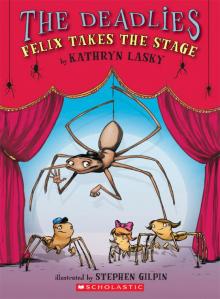 Felix Takes the Stage
Felix Takes the Stage Lucy
Lucy Lone Wolf
Lone Wolf Broken Song
Broken Song The Shattering
The Shattering The Crossing
The Crossing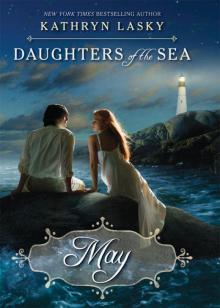 May
May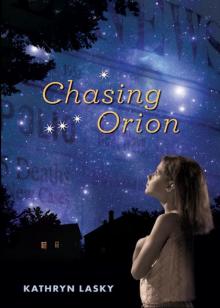 Chasing Orion
Chasing Orion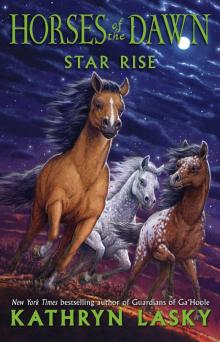 Star Rise
Star Rise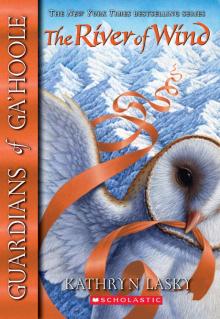 The River of Wind
The River of Wind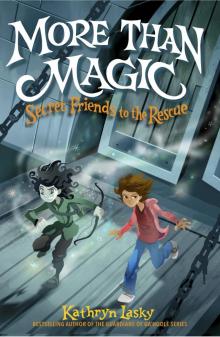 More Than Magic
More Than Magic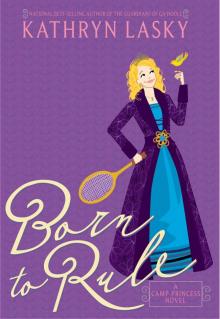 Born to Rule
Born to Rule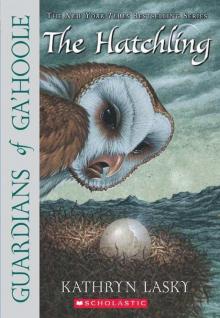 The Hatchling
The Hatchling The Rescue
The Rescue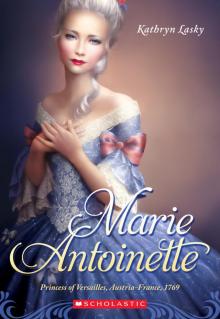 Marie Antoinette: Princess of Versailles, Austria - France, 1769
Marie Antoinette: Princess of Versailles, Austria - France, 1769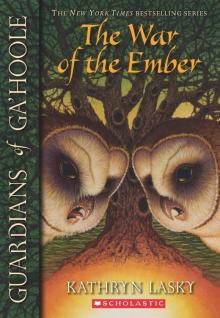 The War of the Ember
The War of the Ember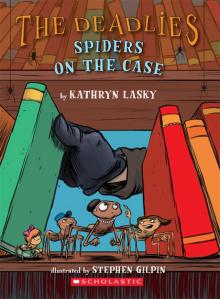 Spiders on the Case
Spiders on the Case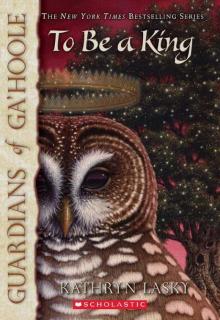 To Be a King
To Be a King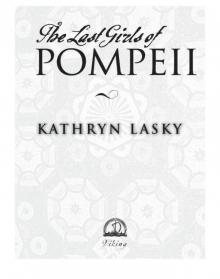 The Last Girls of Pompeii
The Last Girls of Pompeii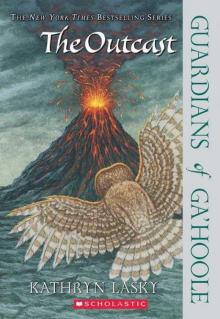 The Outcast
The Outcast Exile
Exile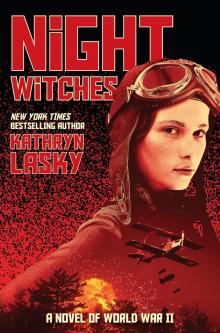 Night Witches
Night Witches Spirit Wolf
Spirit Wolf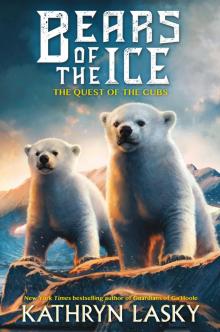 The Quest of the Cubs
The Quest of the Cubs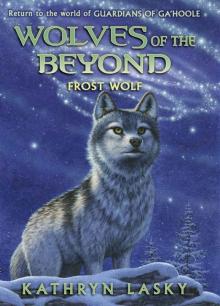 Frost Wolf
Frost Wolf The Keepers of the Keys
The Keepers of the Keys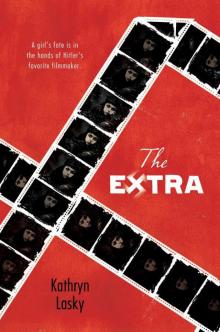 The Extra
The Extra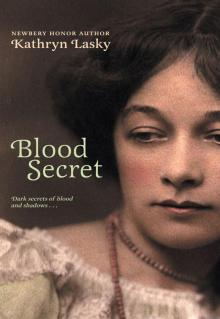 Blood Secret
Blood Secret Watch Wolf
Watch Wolf Blazing West, the Journal of Augustus Pelletier, the Lewis and Clark Expedition
Blazing West, the Journal of Augustus Pelletier, the Lewis and Clark Expedition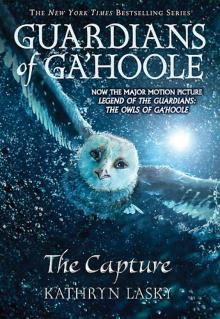 The Capture
The Capture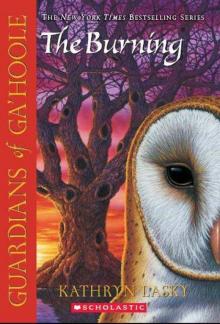 The Burning
The Burning The Journey
The Journey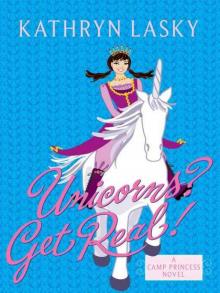 Unicorns? Get Real!
Unicorns? Get Real! The Escape
The Escape Star Wolf
Star Wolf Ashes
Ashes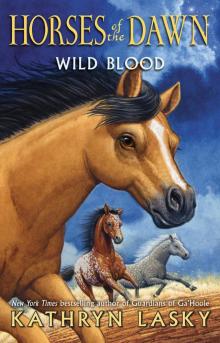 Wild Blood
Wild Blood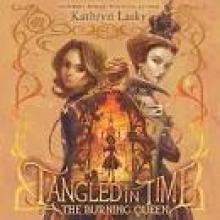 Tangled in Time 2
Tangled in Time 2 The Siege
The Siege Hannah
Hannah Elizabeth
Elizabeth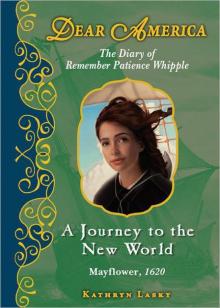 A Journey to the New World
A Journey to the New World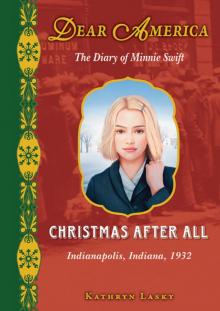 Christmas After All
Christmas After All Mary Queen of Scots
Mary Queen of Scots